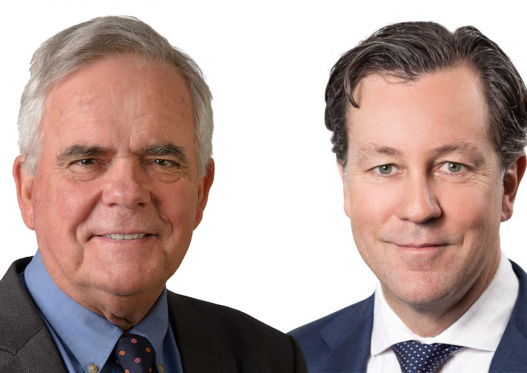In a rapidly changing landscape, banking is a key partner to many impacted parties while simultaneously navigating upheaval in the banking industry itself. Each new disruption reveals fresh opportunities and challenges for existing banks. Some of those challenges take size and scale, features that might previously have been seen as a bank’s greatest strengths, and turn them into weaknesses.
Bankers used to be on a par with medical professionals in regard to the trust held in them by the public. The trust has been eroded, and in the wake of the Royal Commission into Misconduct in the Banking, Superannuation and Financial Services Industry (also known as the Banking Royal Commission and the Hayne Royal Commission), consumers are wary.
How can bankers restore good faith with their customers, improve relationships within their communities, and find ways to increase their value to the average consumer? The answer is sustainable banking.
What Is Sustainability in Banking?
Sustainability is often used to refer to environmentally sound practices, and it is true that responsible financial institutions are increasing their commitment to lower carbon footprints and paper-free processes. But sustainability in banking goes beyond that, speaking to the ability of modern banks to be customer-centric and purpose-driven, sustainable within the communities they serve.
The Australian Sustainable Finance Initiative (ASFI) was formed to shape an Australian banking economy with the dual goals of enhancing financial system stability and resilience while prioritising human well-being, social equity and environmental protection.
While ASFI certainly has an interest in national and global sustainable development goals that directly impact environmental responsibility, the bulk of the initiative is more people-centric. Sustainable banking recognises that the health, sustainability and stability of an economy are directly tied to the health, sustainability and stability of its people and its society. To that end:.
- Sustainability and human rights considerations are being embedded into financial markets, products and services.
- Enhanced disclosure practices and transparency are designed to better account for and manage risk, while ensuring better informed financial decision making.
- The development of a financial system that meets community and consumer expectations positions informed engagement and improved and informed choice at the center of financial interactions, mandating effective disclosures and prioritising client interests with the end goal of better financial inclusion and well-being.
Sustainable banking doesn’t ignore the need for banks to drive revenues. It simply recognises that nurturing the customer base and building trust are the best ways to achieve that goal.
Purpose-driven banking fundamentals
In the PwC Australia Future of Banking report, it is posited that in order to produce economic profit for shareholders, banks must become simpler, smaller and more deeply connected to customers. This can be achieved by adopting the following commitments:
- Explicit organisation around the customer, making them and their needs the focus of every decision in the move towards a sustainable economy.
- Optimisation throughout the value chain, creating a clear step-by-step roadmap for consumers to follow.
- A proactive embracing of regulation, particularly in the areas of responsibility towards customers, disclosures and transparency surrounding fees.
- Simplification in marketing, from the offer to the face and voice of the banking brand.
- A sharper focus on specific areas of innovation, namely automation, digitisation and data management, to highlight new opportunities and provide deep insights into consumer behaviour and needs.
- Putting culture to work to build up the banking industry around pillars of ethics and professionalism.
Banks that prove capable of navigating the modern financial landscape will become more valuable, have more diverse sources of income and produce more sustainable economic profits. Likewise, the most successful bankers will be those able to combine digital awareness with superlative people skills.
New technologies are transforming the financial services industry. Similarly, dedicated, knowledgeable and customer-focused banking professionals will transform consumer experience, creating renewed levels of trust and confidence.
Automation will never replace the connection bankers have with banking customers; while self-service options can streamline frequent operations, banking customers will still depend on highly-qualified banking professionals with both soft skills and precision knowledge of credit and risk, banking operations, local and global regulation, lending technology and sustainable finance.
As fintech continues to disrupt and break banking customer demographics into smaller, more targeted segments, there are opportunities for traditional banks to become more focused and community-driven. Personalisation and customisation are key to delivering the trust-backed relationships today’s financial consumers crave.
How professionalism can drive sustainable banking trends
Professionalism nurtures a sense of pride and community among financial experts, reduces the requirement for legislation and regulators to bear compliance burdens and delivers improved outcomes across customers and communities.
The trust created by professionalism in banking not only enhances the reputation of the financial industry as a whole but can deliver sustainable economic and social benefits.
While codes and standards are set at the industry level, they represent the barest minimum level of discipline bankers should adhere to. Professionalism goes beyond compliance with minimum standards and becomes the foundation on which ethical banking can rebuild the trust lost over the past decades.
The Financial Services Institute of Australasia (FINSIA) is facilitating the development of professional standards created specifically for individual bankers, to complement existing industry or institutional codes and raise the level of responsibility industry-wide.
FINSIA members benefit from a network of like-minded bankers intent on embracing professionalism and bringing the highest possible value to banking customers. A post-nominal is also available to FINSIA members who elect to take the Chartered Banker course. This is an in-depth continuing education opportunity to show dedication and commitment to ethics in banking.
Chartered Bankers can become leaders in the financial world, guiding the way to a more sustainable future in banking and creating purpose-driven initiatives at community levels and across the globe.
To learn more about FINSIA and our commitment to professionalism in banking, contact us today.
Read more stories from FINSIA on sustainability here
Execs from big banks and regulators to ramp up lobbying over climate
ESG investing could increase fivefold over the next five years









